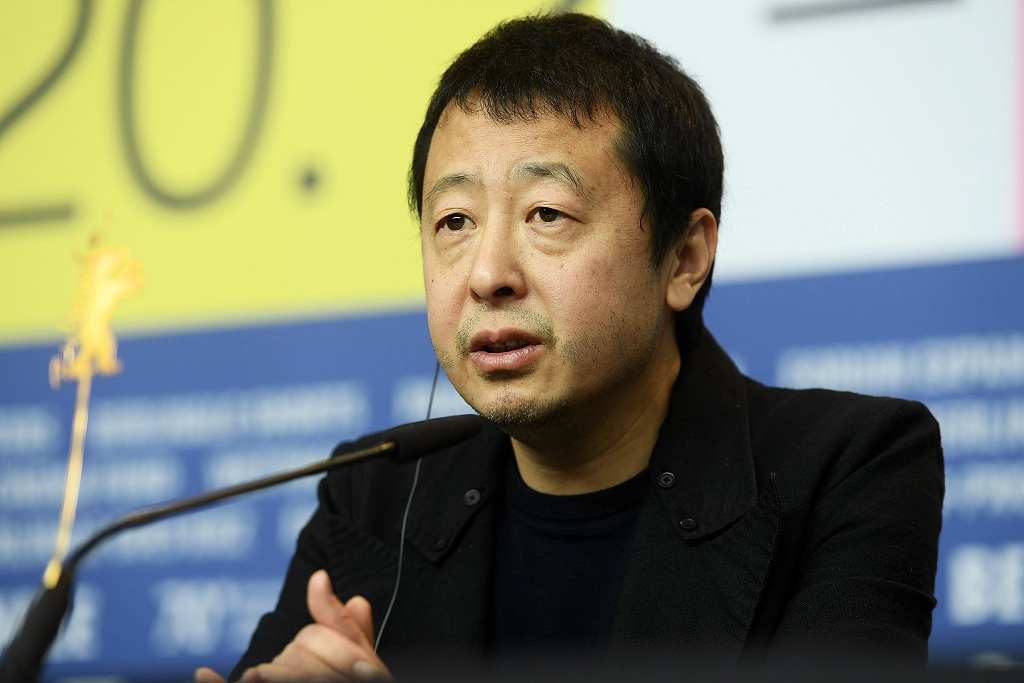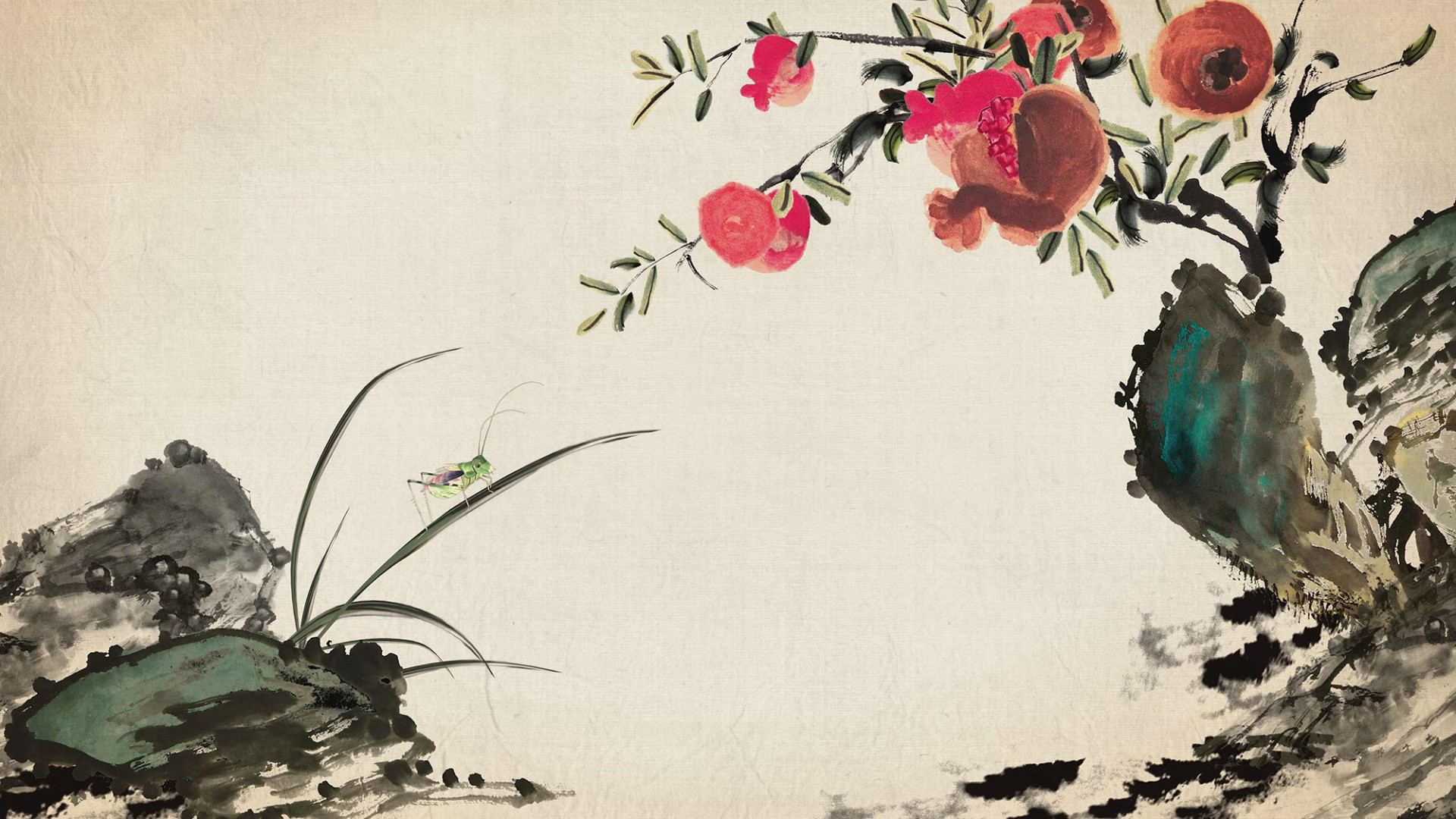The Berlin International Film Festival, or the Berlinale, is familiar to the Chinese people.
Back in 1988, Chinese film "Red Sorghum" pocketed the Golden Bear Award at the 38th Berlinale, the country's first award at a competitive international film festival accredited by the International Federation of Film Producers Associations (FIAPF).
Since then, Chinese films, actors and filmmakers could always be spotted at the Berlinale.
This year, even with the shadows of the coronavirus outbreak, the 70th Berlinale opened on Thursday and has also welcomed several Chinese films.
Jia Zhangke's return to Berlinale
Director Jia Zhangke returned to Berlin this year with a new documentary "Swim Out Till the Sea Turns Blue," the last of his trilogy documentaries focusing on artists. The other two were "Dong" about painter Liu Xiaodong in 2006, and "Useless" about fashion designer Ma Ke in 2007.
In the finale, he turned his camera to four writers of different generations, Ma Feng, who passed away in 2004, and three living writers Jia Pingwa, Yu Hua and Liang Hong. Through their observation and experience of life, the documentary film tries to depict the history of China since 1949.

Jia Zhangke attends press conference for his new film "Swimming Out Till the Sea Turns Blue" during the 70th Berlinale International Film Festival Berlin at Grand Hyatt Hotel on February 22, 2020 in Berlin, Germany. /VCG
Jia Zhangke attends press conference for his new film "Swimming Out Till the Sea Turns Blue" during the 70th Berlinale International Film Festival Berlin at Grand Hyatt Hotel on February 22, 2020 in Berlin, Germany. /VCG
The film was divided into 18 chapters in seemingly random titles such as "Eating," "Sister," "The Old and The New," and "Journeys." Interwoven with the extracts from the authors' interviews and prominent works are also the scenes of local people and their daily life. Instead of focusing on the writers, the film is more about the life, homeland and history through the eyes of the four special witnesses.
And there is also the exploration of the relations between the hometown and artistic creation, a theme that has inspired most of Jia's other films. The film's original name was also "So Close to My Land." Some of the writers used the accent of their homeland in narration, instead of the standard mandarin.
"The younger generation is more familiar with life in cities, and the villages are far away from them. That's why I think it is necessary to make a film about our relations with the rural memories," Jia was quoted as saying at a press conference in Berlin on Saturday.
"The writers have started their career in such rural life, and they are the witnesses of history."
The film was screened at the special screening sector.
Another film "The Calming" by Chinese director Song Fang, starring actress Qi Xi, is screened at the Forum sector of the 70th Berlinale. The film is about a woman's regain of tranquility after breaking up with her boyfriend and traveling around the world all by herself. Jia Zhangke was the producer of the film.

Qi Xi, Chinese actress, walks on the red carpet of the 70th Berlinale in Berlin, Germany. /VCG
Qi Xi, Chinese actress, walks on the red carpet of the 70th Berlinale in Berlin, Germany. /VCG
Director Tsai Ming-liang's "Days" is the only Chinese film in the Competition section of this year's Berlinale. The filming was launched in 2014, without screenplay and any plan. There are only two actors, Lee Kang-sheng and Anong Houngheuangsy.
The 127-minute film has no dialogue at all, and according to Tsai, the shooting started from Lee Kang-Sheng's getting sick, and it is about the days of Lee, Anong and himself. Calling it a "gift" of the heaven, Tsai said the film is about pains and reliefs.
Tsai, a Chinese Taiwan director born in Malaysia, is a frequenter of prominent international film festivals. His 1994 film "Vive L'Amour" won the Golden Lion Award at the 51st Venice International Film Festival, and "The River" in 1997 took home the Silver Bear Award for Special Jury Prize at the 47th Berlinale.
"Suk Suk" by Hong Kong director Ray Yeung will be screened at the Panorama section. The film is about the homosexual love between two senior aged men, a realm that has rarely been touched in the Chinese-language films.
It is considered one of the most prominent films of 2019, and has been nominated for several awards in this year's Hong Kong Film Awards.
Tradition returns for animation films
Besides, an ink-wash-style animated short film "Harvest" has entered the Generation Kplus section.
Directed by Sun Lijun, the film was produced for two years and was a cooperative project between Beijing Film Academy and Shanghai Animation Film Studio.
The five-minute short film has a simple storyline about a grasshopper's searching for food after the harvest in autumn. It was a new exploration of presenting the traditional Chinese ink-wash paintings with the new technology. The story was based on the paintings of accomplished artist Qi Baishi, who is renowned for his ink-wash paintings.
Chinese animation films featuring traditional art forms such as ink-wash paintings, paper cuttings and paper folding were once inspiring for the international films.
A 1983 ink-wash animated short film "The Fight Between the Snipe and the Clam" once won the Silver Bear for Best Short Film at the Berlinale in 1984. Now 36 years later, it seems the ancient art once again finds a way of joining hands with the film industry.

A still from film "Harvest." /Beijing Film Academy
A still from film "Harvest." /Beijing Film Academy
Affected by the coronavirus outbreak, most Chinese cinemas remain closed. A number of Chinese companies including Wanda Group and Alibaba have also canceled their plans of setting up booths at the 70th Berlinale.
The China Film Association recently issued a notice, asking the cinemas to get prepared for reopening. But it is unknown when the cinemas could resume business.
The 70th Berlinale will hold the awarding ceremony on Saturday.
Cover image designer: Li Wenyi